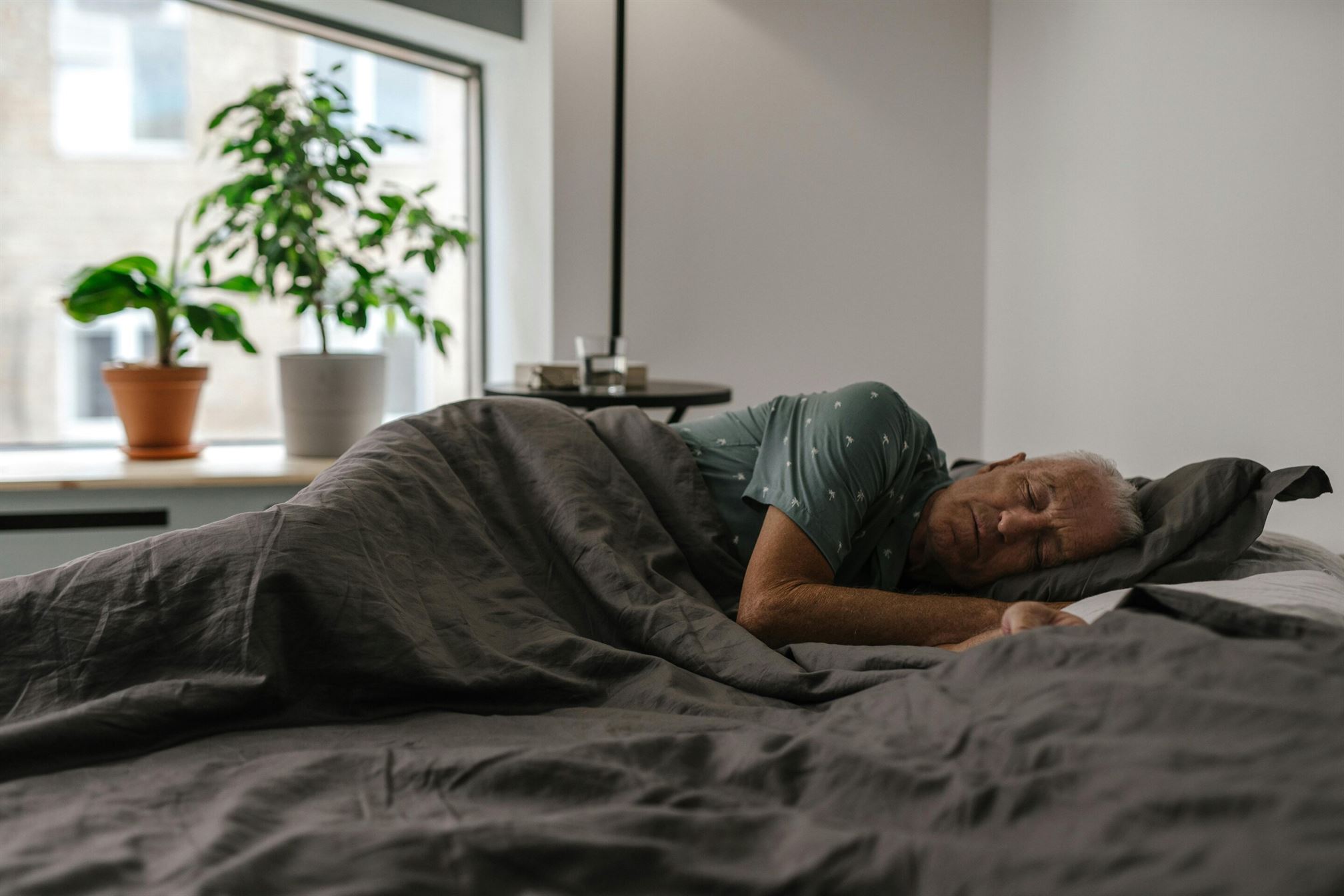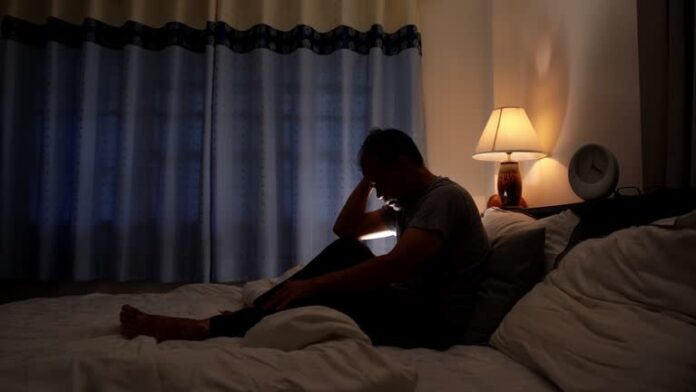In This Article
- 1 Why Sleep Changes After 60
- 2 The Science of Sleep – Why It Matters at Every Age
- 3 How Sleep Changes with Age
- 4 What the Sleep Doctors Say – Hours You Actually Need at 60+
- 5 Dangers of Not Getting Enough Sleep After 60
- 6 Signs You’re Not Getting Enough Sleep
- 7 Sleep Disorders Common in People Over 60
- 8 Top 15 Tips for Better Sleep After 60
- 8.1 1. Stick to a consistent bedtime
- 8.2 2. Avoid long daytime naps
- 8.3 3. Get sunlight exposure daily
- 8.4 4. Limit caffeine and alcohol
- 8.5 5. Create a calming bedtime routine
- 8.6 6. Keep your bedroom cool and dark
- 8.7 7. Use your bed only for sleep
- 8.8 8. Exercise regularly
- 8.9 9. Check your medications
- 8.10 10. Practice relaxation techniques
- 8.11 11. Address pain or discomfort
- 8.12 12. Keep a sleep diary
- 8.13 13. Avoid heavy meals at night
- 8.14 14. Listen to soothing sounds
- 8.15 15. Try cognitive behavioral therapy for insomnia (CBT-I)
- 9 Should You Take Sleep Medications at 60+?
- 10 How to Create a Senior-Friendly Sleep Environment
- 11 Sleep and Mental Health in Seniors
- 12 FAQs: Seniors and Sleep
- 13 Is it normal to wake up multiple times during the night after 60?
- 14 What time should seniors go to bed?
- 15 Can poor sleep lead to Alzheimer’s?
- 16 Conclusion: The Ideal Sleep Formula for Seniors
- 17 Final Thought:
Why Sleep Changes After 60
Aging is a natural part of life—and so are the changes that come with it. One of the most significant and often overlooked aspects of aging is sleep. For people aged 60 and older, the question becomes: how much sleep do I really need to stay healthy? According to leading sleep specialists, including Dr. Matthew Walker and the National Sleep Foundation, understanding your changing sleep patterns is the first step toward better health.
In this comprehensive article, we will explore what sleep doctors recommend for those over 60, the reasons behind age-related sleep changes, common sleep disorders among seniors, and proven strategies to improve sleep quality in later life.
The Science of Sleep – Why It Matters at Every Age
Sleep isn’t just a passive activity—it’s a critical function for physical and mental restoration. As we sleep, our body repairs cells, consolidates memories, and regulates vital functions like metabolism and immune response.
READ MORE: Unveiling 2024’s Top 5 Bedroom Taboos: A Sex Historian’s Perspective
For seniors, sleep becomes even more essential for:
-
Cognitive function
-
Emotional balance
-
Immune support
-
Muscle repair
-
Heart health
Sleep deficiencies in older adults can be linked to conditions such as Alzheimer’s, heart disease, stroke, depression, and diabetes.
How Sleep Changes with Age
As we age, our sleep patterns naturally shift due to biological changes in the brain and body. These changes are not necessarily disorders, but understanding them can help you adapt.
Common changes after 60 include:
-
Decreased melatonin production – Makes it harder to fall and stay asleep
- Advertisement - -
Lighter sleep stages – More awakenings during the night
-
Earlier sleep and wake times – “Advanced sleep phase syndrome”
-
Reduced deep sleep – Less time spent in restorative slow-wave sleep
Despite these changes, older adults still need quality sleep. It’s a myth that seniors “just need less sleep”—what often happens is that they get less due to fragmented sleep or health conditions.

What the Sleep Doctors Say – Hours You Actually Need at 60+
According to the National Sleep Foundation and American Academy of Sleep Medicine, adults aged 60 and above need 7 to 9 hours of sleep per night.
Here’s a simplified breakdown:
| Age Group | Recommended Sleep Duration |
|---|---|
| 18–64 | 7–9 hours |
| 65+ | 7–8 hours |
What Dr. Shelby Harris (Sleep Psychologist) Says:
“Older adults often get caught in a loop of short, fragmented sleep and naps throughout the day. While 7-8 hours is ideal, quality matters more than quantity.”
Dangers of Not Getting Enough Sleep After 60
Failing to meet the recommended sleep requirement can have serious health implications, especially in older adults.
Some health risks include:
-
Memory loss and dementia
-
Increased risk of heart disease and stroke
-
Weakened immune system
-
Obesity and diabetes
-
Mood disorders like depression and anxiety
-
Poor balance, leading to more falls and fractures
Real Case:
A 62-year-old woman suffering from insomnia and getting only 4 hours of sleep nightly developed high blood pressure and signs of early cognitive decline. With treatment focusing on improving sleep hygiene, her symptoms improved within months.
Signs You’re Not Getting Enough Sleep
It’s not just about hours—watch for the following symptoms of sleep deprivation:
-
Daytime sleepiness
-
Forgetfulness
-
Irritability
-
Frequent yawning
-
Poor concentration
-
Muscle aches
If you experience these regularly, consult a sleep specialist.
Sleep Disorders Common in People Over 60
1. Insomnia
Most common in seniors, affecting up to 50% of people over 60. Causes include stress, pain, medications, or poor sleep habits.
2. Sleep Apnea
Characterized by snoring, gasping, and choking during sleep. Often undiagnosed in elderly people.
3. Restless Leg Syndrome (RLS)
Causes uncomfortable sensations in the legs that disrupt sleep.
4. REM Sleep Behavior Disorder
People act out dreams—linked to Parkinson’s and other neurodegenerative diseases.
5. Circadian Rhythm Disorders
Your body clock shifts earlier, causing early waking and difficulty staying asleep.
Top 15 Tips for Better Sleep After 60
1. Stick to a consistent bedtime
Keep the same sleep and wake schedule—even on weekends.
2. Avoid long daytime naps
Limit naps to 20–30 minutes, and avoid napping late in the day.
3. Get sunlight exposure daily
Morning sunlight helps reset your circadian rhythm.
4. Limit caffeine and alcohol
Avoid caffeine after 2 PM and alcohol close to bedtime.
5. Create a calming bedtime routine
Warm bath, light reading, or prayer/meditation helps signal your brain it’s time to sleep.
6. Keep your bedroom cool and dark
Ideal temperature is between 60-67°F (15-19°C).
7. Use your bed only for sleep
Avoid watching TV or scrolling on your phone in bed.
8. Exercise regularly
Even light walking improves sleep quality—but not right before bed.
9. Check your medications
Some medications cause insomnia—ask your doctor.
10. Practice relaxation techniques
Deep breathing, progressive muscle relaxation, or guided imagery helps.
11. Address pain or discomfort
Talk to your doctor about nighttime pain interfering with sleep.
12. Keep a sleep diary
Track your sleep patterns, triggers, and improvements.
13. Avoid heavy meals at night
Late dinners can cause indigestion and disturb sleep.
14. Listen to soothing sounds
White noise or nature sounds can lull you into sleep.
15. Try cognitive behavioral therapy for insomnia (CBT-I)
Proven more effective than sleeping pills long term.
Should You Take Sleep Medications at 60+?
While sleep aids like melatonin or sedatives may offer temporary relief, they are not recommended for long-term use in seniors. Risks include:
-
Dependency
-
Drowsiness during the day
-
Increased risk of falls
-
Memory problems
What to Try Instead:
-
Melatonin (low-dose)
-
Valerian root
-
Chamomile tea
-
CBT-I therapy
Always consult your doctor before taking supplements.
How to Create a Senior-Friendly Sleep Environment
Seniors can make small adjustments that significantly improve sleep quality.
Sleep-enhancing bedroom checklist:
✅ Comfortable mattress and pillows
✅ Blackout curtains or eye mask
✅ White noise machine or fan
✅ Nightlight for bathroom trips
✅ No clocks that light up too bright
✅ Mobility aids if needed (rails, easy-access bed)
Sleep and Mental Health in Seniors
There is a strong two-way relationship between sleep and mental health. Poor sleep can worsen anxiety and depression, and vice versa.
Consider these red flags:
-
Feeling hopeless or empty
-
Chronic worry
-
Loss of interest in daily activities
If these persist, speak with a healthcare provider—therapy and treatment can also improve sleep.
FAQs: Seniors and Sleep
Is it normal to wake up multiple times during the night after 60?
Yes, some increased night awakenings are normal, but if they disrupt daytime function, it’s worth investigating.
Between 9–11 PM is ideal. Going to bed and waking up at the same time daily is more important. What time should seniors go to bed?
Chronic sleep deprivation is associated with higher Alzheimer’s risk due to increased beta-amyloid accumulation. Can poor sleep lead to Alzheimer’s?
Conclusion: The Ideal Sleep Formula for Seniors
The takeaway from sleep doctors is clear: adults over 60 need about 7 to 8 hours of quality sleep each night. But it’s not just about hours—the depth, continuity, and comfort of your sleep matter just as much.
If you’re a senior struggling with sleep, you’re not alone. The good news? With small, consistent changes and possibly professional support, better sleep is within your reach—and your golden years can be healthier, brighter, and more energetic than ever.
Final Thought:
“You don’t need to sleep like a baby, but you should sleep like a wise adult who knows the value of rest.”





